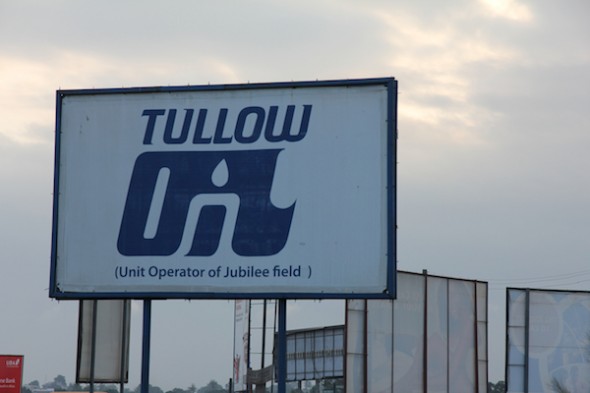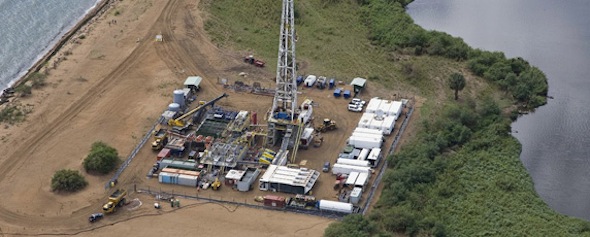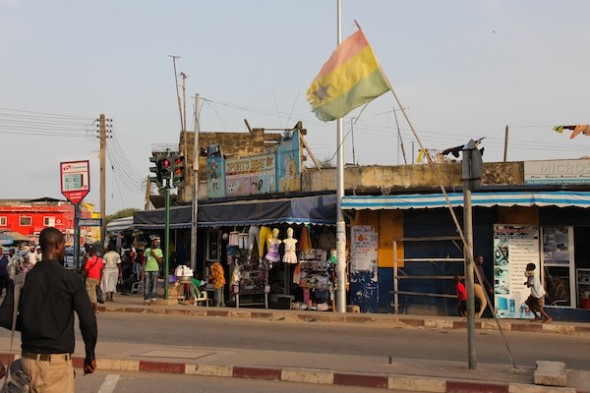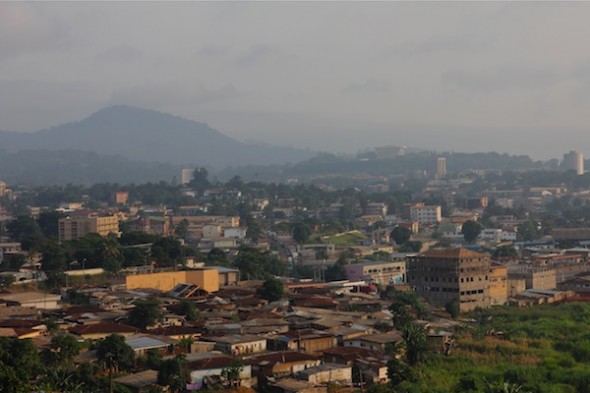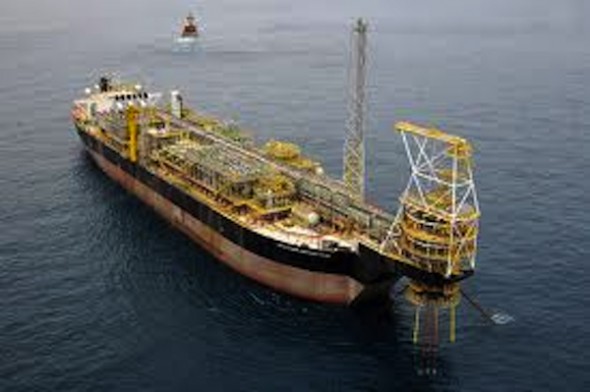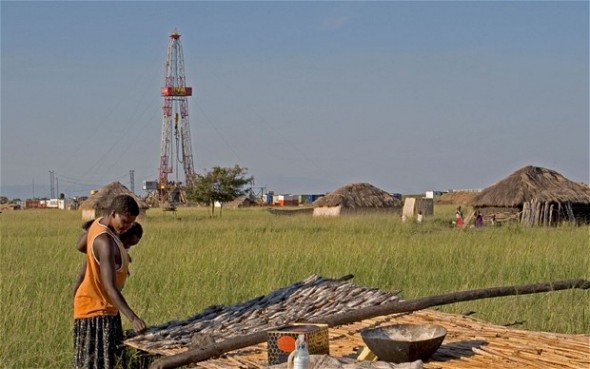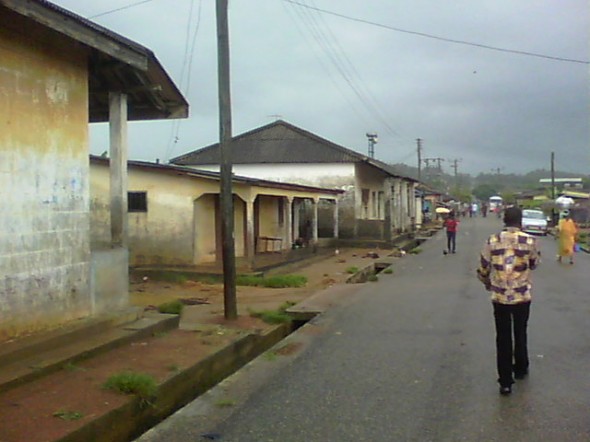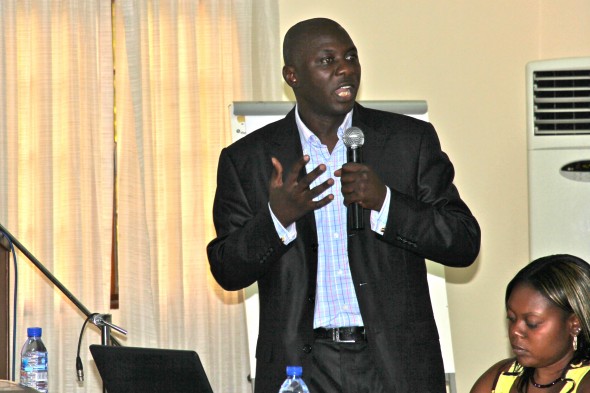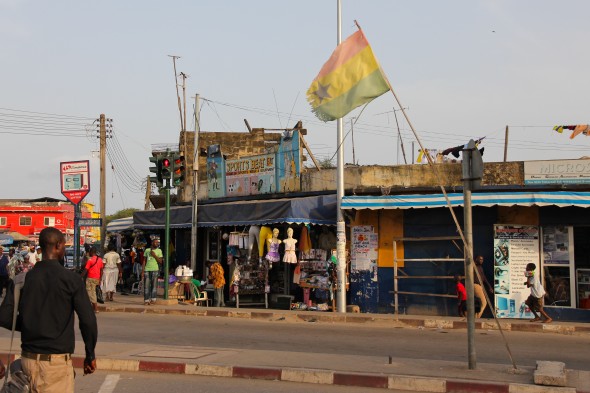Tullow’s tax disclosures torpedo Big Oil’s campaign for secrecy
From Global Witness:
March 24, 2014
The UK company Tullow Oil today became the world’s first extractive firm to publish details of its revenue payments to governments broken down by each project the company operates worldwide. The disclosures, released today in Tullow’s annual report, show the taxes, royalties, licence fees and other public revenues generated by the company’s operations across 21 countries – 14 of which are in sub-Saharan Africa – for the years 2012 and 2013.
Tullow’s voluntary disclosures are being released in advance of a new EU law, due to come into force in the UK in 2015, that will require EU oil, mining and logging companies to publish their payments to governments on a project-by-project basis. These detailed disclosures will enable citizens in economically poor but resource-rich regions to monitor public revenues worth hundreds of billions of dollars and hold governments to account for how the money is used.
Oil, Money and Secrecy in East Africa
Tom Rhodes, the Committee to Protect Journalists’ East Africa Consultant, has written an interesting story on the secrecy surrounding oil development in Uganda, Kenya and South Sudan. Rhodes writes that the inability of journalists to access information and report on contract deals and resource allocation greatly increases the risks for corruption and environmental degradation. Last year I wrote a post on Tullow Oil’s secret deals in Uganda, contrasting that situation to Tullow’s much more transparent operations in Ghana.
After I published that story a Tullow Oil representative contacted me and explained that Tullow’s practices were dictated by local governments. Tullow can be transparent in Ghana because the government wants to be transparent. In Uganda, the official told me, the government does not want contract information published.
Ghana’s oil worries?
I have a decent internet connection this morning, so I’ll take advantage of that to post some of the back and forth between Ghanaian think tank, IMANI, and the Ghana National Petroleum Corporation (GNPC). IMANI has recently published some interesting articles on the Jubilee field’s underperformance. In contrast to the excited tone of most of the business news about the country’s oil industry, the IMANI articles raise serious questions about the industry’s costs and prospects.
Worrying Developments in Ghana’s Oil Sector discusses production levels that are hovering around 60,000 b.p.d. The projected 120,000 barrel daily output has never been met and at this time, it is unclear when production will reach this level. IMANI has questioned both the speed of the Jubilee field development and the original production projections.
Yaounde landing…
I haven’t had a chance to post anything for a few weeks. I’ve just arrived in Yaounde, Cameroon, and hope to have more time to get information up in the coming days. I’m starting some new work and will look forward to writing about it.
In the meantime, I want to provide links to a few articles up at Ghana Oil Watch. As the months go by, the Jubilee Field projected 120,000 b.p.d. output level is looking increasingly like wishful thinking. It has been hard to get clear information on why — exactly — production is so low. Tullow and its partners have repeatedly cited technical issues as the cause, yet now that those issues are supposedly resolved, why haven’t production levels increased?
“Good” oil companies, “bad” oil companies
Tullow Oil has recently completed a controversial $2.9 billion sale of parts of its Ugandan oil stakes. Tullow’s deal with Total (France) and CNOOC (China), which had been mired in disputes with the Ugandan government for more than a year, was finalized despite a parliamentary resolution to suspend all oil contracts until laws and institutions are in place to fight corruption.
Uganda’s oil reserves appear to be significant, and there are indications that the region could be another oil bonanza. But at the moment, fears of corruption are dampening the mood. According to a recent article from the Associated Press Uganda stands to earn some $2 billion per year for the next 35 years, but:
“All signs are that Uganda will be the latest nation to fall victim to the ‘oil curse’ — cheated of its financial benefits by a corrupt government and left with extensive environmental damage,” said Uganda’s Association of Professional Environmentalists.
Critics are already complaining that more than $300,000 paid in signature bonuses on oil contracts already have gone missing. Legislators have accused the prime minister and two Cabinet ministers of taking millions of dollars in bribes from Tullow — charges Tullow denies.
The controversy surrounding Tullow’s operations in Uganda doesn’t fit with the image of Tullow Oil in Ghana.
Is Ghana really ready for oil?
Is Ghana ready for an oil disaster? It’s difficult to find officials who want to talk about the subject. Most prefer saying things like, “We learned many lessons from the Deepwater Horizon spill,” and, “It can’t happen here.” Truth is (and everyone knows this), a disaster can strike anywhere.
Ghana has been producing oil from its offshore Jubilee field since December 2010, yet still lacks monitoring vessels, equipment and personnel. The country has an “oil spill response plan” — on paper — but could Ghana actually respond to and deal with a significant oil spill?
This video and a new article published today on iwatch news explore the state of Ghana’s environmental regulation and emergency preparedness.
Jubilee partners in the news
Tullow Oil and Anadarko have been in the news, both inside and outside Ghana. In Ghana, things are going well for the two companies. Tullow, most notably, appears to be moving towards development of its recent Tweneboa and Enyera discoveries (translation: more commercial oil production on the way).
Outside of Ghana it’s a different story. In Uganda, Tullow is caught up in a political scandal involving corruption allegations. The Ugandan government has blocked Tullow’s sale of some of its Ugandan holdings to Total and CNOOC, pending an investigation. Tullow categorically denies the allegations, but there’s no denying that Uganda’s oil adventure does not look to be off to a good start.
Could Uganda Be the Next Niger Delta?
Oil reserves in Uganda, where Tullow Oil is also a major player, may be significantly larger than original estimates and that doesn’t make everyone happy. Here’s an interesting article from the Center for Global Development. The Center supports direct payments of oil rents to citizens; it’s what they call “Oil-to-Cash,” and I’ve included a link to one of their reports on the topic.
Jubilee’s oil…Bonyere’s gas: what’s going on?
Today I’m posting an article by Stephen Yeboah on the proposed Bonyere gas project. Yeboah, a Ghanaian development practitioner who focuses on the extractive industries, recently participated in a training program on oil and gas reporting funded by Revenue Watch Institute, Thomson Reuters Foundation and the International Institute of ICT Journalism (Penplusbytes).
First some background:
The Jubilee oil development project includes plans to pipe the gas released by the drilling to shore where it will be processed to generate electricity and eventually lead to further industrial development.
It’s been awhile…
Days turn into weeks and I haven’t posted a thing. I guess I’ve got those oil blues…
Well, that and I have been editing video and preparing an article for publication. If all goes as planned, new material should be online in the next few days. I’ve also been to London to interview Stuart Wheaton, Ghana Development Manager for Tullow Oil, and Romain Chancerel, Project Manager for the Global Initiative for West and Central Africa (GIWACAF). GIWACAF is a public-private partnership working to develop and enhance oil spill response capacity in the Gulf of Guinea region.
Report card: Ghana oil gets a “C”
The report card is out and Ghana’s overall grade is a “C.”
The government (executive branch), the parliament, the donor partners, the oil and gas companies and civil society all received average grades of “C” (fair). As Mohammed Amin Adam, National Coordinator of the Civil Society Platform, explained, the objectives of the readiness report and the accompanying report card are to acknowledge progress made to date and to encourage renewed efforts moving forward. That’s why, according to Amin, the grading system was fairly easy.
Oil City: Where are the Jobs, pt. 2
“Oil City,” Ghana’s new Wild West. There may not be many oil industry jobs here for the moment, but the fortune seekers, schemers and scammers have arrived and there’s snake oil for sale on every corner.
Here’s part of one email I recently received (I’ve removed names and numbers):
I was offered a vacancy by an engineer whom does recruiting for jubilee oil rig (tel +233-xxx-xxx-xxx Mr. xxxxx) he told me to obtain visa etc we had to pay in 490 us dollars via western union and that he would get back to me he now is asking for a further 1699 us dollars for some documentation levy payable to Ghana Maritime labour law it is for the certification of employment and travel documents under GMA prior before delivery as a new employee joining the Ghana jubilee oil field.
Union Man: Where are the jobs?

Francis Sallah, Regional Industrial Relations Officer, Ghana Trades Union Congress. Photo by Christiane Badgley
Nothing seems to capture the public imagination like oil. The real impact of the oil industry on local communities in Africa is in plain sight from Nigeria to Chad to Equatorial Guinea and beyond, but this hardly dampens public enthusiasm for the black gold.
In Ghana, things were no different. When Ghanaians found out there was oil off their coast, a sense of excitement spread across the country. Optimistic and at times unrealistic statements from various company officials and ministries added to expectations. Continue reading . . .

